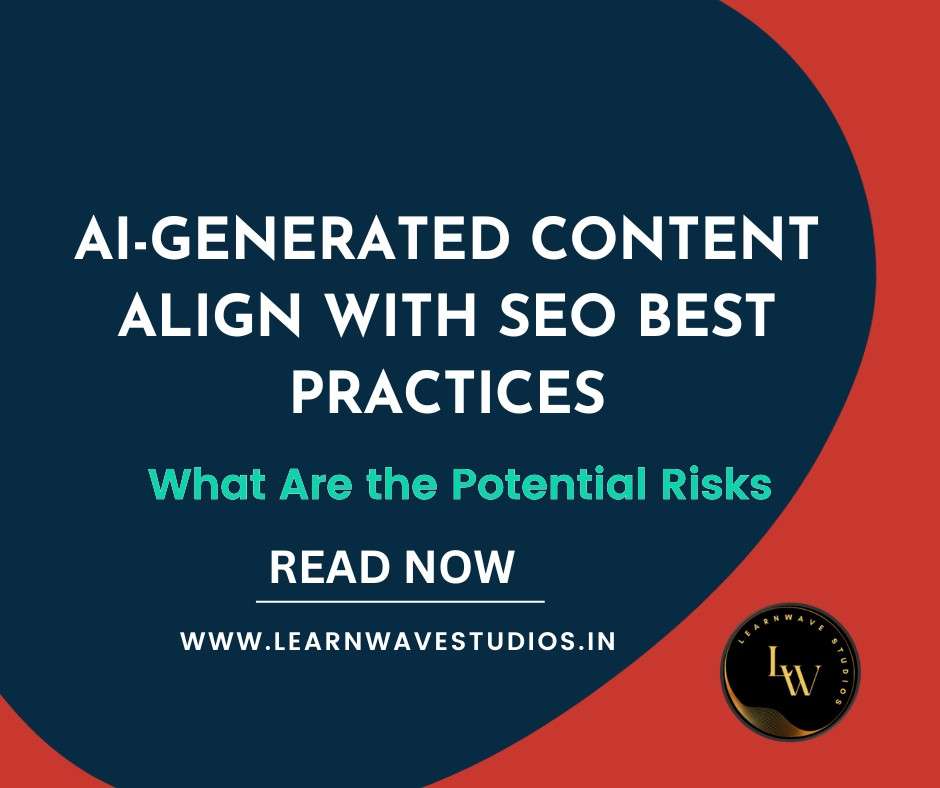How Does the Implementation of AI-Generated Content Align with SEO Best Practices, and What Are the Potential Risks?
Artificial Intelligence (AI) has rapidly transformed the digital landscape, reshaping how content is created, optimized, and consumed. In the realm of search engine optimization (SEO), the integration of AI-generated content presents both opportunities and potential challenges. This article aims to explore how the implementation of AI-generated content aligns with SEO best practices, along with an examination of the potential risks associated with this emerging technology.

Understanding AI-Generated Content AI-generated content refers to the use of advanced algorithms and natural language processing (NLP) to create written material without direct human input. From automated news articles to product descriptions, AI-generated content has become increasingly prevalent in the digital realm. This technology has the potential to streamline content creation processes, enhance scalability, and deliver personalized experiences to users.
Alignment with SEO Best Practices When assessing the alignment of AI-generated content with SEO best practices, several key considerations come to the forefront:
1. Quality and Relevance: High-quality, relevant content remains a cornerstone of effective SEO. AI-generated content must align with user intent, provide value, and maintain relevance to the target audience to positively impact search rankings. The ability of AI to analyze user data and preferences can contribute to creating content that resonates with audiences.
2. Keyword Optimization: AI can assist in identifying and implementing relevant keywords within content, thereby strengthening its SEO performance. By leveraging AI-powered tools, content creators can conduct comprehensive keyword research and seamlessly integrate targeted keywords into their material to improve visibility in search engine results.
3. User Experience: User-centricity is paramount in SEO, and AI-generated content should prioritize delivering a seamless and valuable user experience. From personalized recommendations to dynamic content generation, AI can enhance user engagement and satisfaction, ultimately bolstering SEO performance.
Potential Risks While AI-generated content holds promise, it also poses potential risks that merit consideration:
1. Unintended Plagiarism: AI algorithms may inadvertently replicate existing content, leading to issues of duplicate or plagiarized material that can negatively impact SEO performance and brand reputation.
2. Lack of Authenticity: Content created solely by AI may lack the authenticity and human touch that resonates with audiences, potentially diminishing trust and engagement.
3. Algorithmic Biases: AI algorithms can inherit biases present in training data, potentially leading to biased or inaccurate content that may not align with the values and objectives of brands, impacting SEO and brand perception.
In conclusion, the implementation of AI-generated content presents an intriguing intersection with SEO best practices. While AI can enhance content creation, keyword optimization, and user experiences, careful consideration of potential risks, such as unintended plagiarism and algorithmic biases, is essential. By embracing AI responsibly, content creators can harness its capabilities to elevate SEO performance while safeguarding the integrity and authenticity of their digital presence. As AI continues to evolve, understanding its role in content creation and SEO will be pivotal in adapting to the ever-changing digital landscape.

